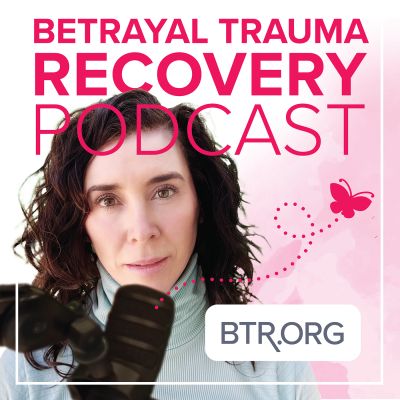btr.org - btr.org has daily, online Group and Individual Sessions for victims of emotional & psychological abuse and sexual coercion. For women experiencing pain, chaos, and isolation due to their husband’s lying, gaslighting, manipulation, porn use, cheating, infidelity, emotional abuse, and narcissistic abuse. Labeling a victim as "codependent" is a form of victim blaming. Pornography addiction / sex addiction are a domestic abuse issue. Narcissistic abuse is not a communication issue. We help women who are married, separated, or divorced heal through establishing emotional safety. If you suspect your husband is a narcissist, a pornography addict, or emotionally abusive, this podcast is for you. Every woman on our team has experienced betrayal trauma first hand. To learn more about Betrayal Trauma Recovery, visit BTR.ORG
https://www.btr.org/podcast/
episode 32: Betrayal Trauma Symptoms: Am I Crazy?
Betrayal trauma is a deeply distressing experience that can profoundly affect individuals, particularly those in intimate relationships where trust is shattered. This trauma often arises from various forms of betrayal, including infidelity, secret pornography use, and deception. It leaves survivors with emotional scars that can be challenging to overcome. Here at BTR.ORG, we believe that you CAN overcome these challenges.
Anne shares her own experiences with betrayal trauma symptoms like nightmares, self-doubt, and unexplained autoimmune diseases and chronic pain. Listen to this episode for more.
Overwhelming Emotions & Sleep Difficulties
One of the hallmark symptoms of betrayal trauma is the overwhelming surge of emotions. Victims often find themselves engulfed in a whirlwind of feelings, ranging from intense anger, sadness, confusion, and fear. These emotions can be all-consuming, making it challenging to concentrate on daily tasks or maintain emotional stability.
Many betrayal trauma victims experience sleep disturbances, including insomnia or frequent nightmares. Survivors may find it difficult to fall asleep, wake up in the middle of the night, or experience distressing dreams related to the betrayal. As Anne recounted, she frequently had nightmares about her partner's lack of empathy, which is not uncommon among those who have experienced similar trauma.
Cognitive Challenges & Changes in Eating Habits
The cognitive impact of betrayal trauma often includes brain fog and difficulty concentrating. Survivors may experience persistent intrusive thoughts, obsessive rumination, and racing thoughts that make it hard to focus on their daily responsibilities.
The emotional turmoil of betrayal trauma can lead to changes in eating habits. Some individuals may overeat as a coping mechanism, while others may lose their appetite and struggle to maintain a healthy diet. Emotional eating can become a common response to the overwhelming stress.
Anxiety & Depression, Obsessive Thoughts & Behaviors
Anxiety and depression frequently co-occur with betrayal trauma. Individuals may become anxious about the future of their relationships, their self-worth, and their ability to trust again. These feelings can escalate into full-blown depression, leading to a profound sense of hopelessness and despair.
Survivors often find themselves trapped in a cycle of obsessive thoughts and behaviors. They may constantly check their partner's activities, seek reassurance, or become preoccupied with details of the betrayal. This obsessive behavior can be mentally and emotionally exhausting.
Physical Symptoms
Betrayal trauma can also manifest in physical symptoms, such as tension headaches, muscle aches, and gastrointestinal distress. The constant stress and emotional turmoil can take a toll on the body, leading to a range of physical complaints.
Emotional Detachment and Borderline Symptoms
In some cases, survivors of betrayal trauma may experience emotional detachment as a defense mechanism. They might distance themselves emotionally from their partner to protect themselves from further hurt. This emotional withdrawal can affect the intimacy and connection in the relationship.
Some individuals who have experienced betrayal trauma may develop borderline-like symptoms, including unstable self-esteem, impulsivity, and difficulty regulating their emotions. These symptoms can be a response to the ongoing emotional turmoil and uncertainty in their lives.
BTR.ORG Is Here For You
Betrayal trauma symptoms can be deeply distressing and challenging to overcome. It is crucial for survivors to seek support. Consider attending a BTR.ORG Group Session today as you begin your journey to safety ...
